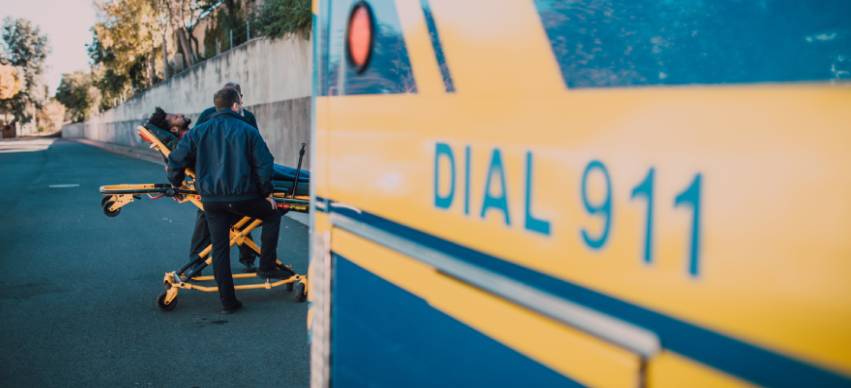How Communities Are Changing the Way We Think About Aging in..
8 Min Read

When you get hurt because of someone else’s negligent behavior, you may want to consider filing a personal injury claim. This allows you to recover compensation for the financial burdens caused by your injuries.
However, understanding the steps you should take immediately after your injury is imperative. The things you do in the moments that follow could affect your case.
Take the following steps to have a better chance at successfully recovering the compensation you deserve.
Step #1: Get Immediate Medical Attention
If you have endured serious injuries in a car accident or fractured your hip in a slip and fall on someone’s property, you will likely need an ambulance to take you to the emergency room. Many injury victims have their judgment clouded by adrenaline and often don’t realize the severity of their injuries.
You may think your injuries are no big deal since there is no external bleeding and you can move your limbs. However, traumatic brain injuries, internal bleeding, and spinal cord injuries may not have immediate symptoms. This is why it’s important to seek medical attention to get a proper diagnosis and treatment plan.
Valid personal injury claims require documentation of injuries. When you get the treatment you need after an injury, you will have a medical record that documents when the injuries occurred. It also documents the extent of your injuries and what needs to happen to help you recover.
Step #2: Get a Report of Your Accident
After a car accident, you should call the police. They will document the accident scene and file a police report. For other accidents like a slip and fall or construction accident, you must notify the owner of the property as soon as possible. They should create an incident report that proves the accident happened on the date specified.
Step #3: Gather as Much Evidence as Possible
If you are capable of doing so, take photos and videos of the accident scene or your surroundings at the store, restaurant, construction site, or other location. Try to get various angles that demonstrate what happened and how the other party was liable for your injuries.
Witnesses can be vital, so it’s wise to get their contact information and a statement before their memory fades. However, if your injuries are severe, this step may be impossible to complete on your own. As soon as you are able, contact a personal injury attorney to represent you and they will begin gathering the evidence and investigating your accident.
Step #4: Follow All Recommendations from the Doctors
When you have serious injuries, it is quite common to need to see multiple doctors and specialists to help you recover your health and treat your injuries. Never skip these appointments and always follow through with the advice you are given.
If you ignore treatments that a doctor recommends, it shows the insurance company that you are not taking your injuries seriously. This means that the liable party could argue that you’re not as injured as you claim, resulting in a decrease in your compensation.
Step #5: Contact a Personal Injury Attorney to Represent You
Your health and recovery are the most important things after an accident. The added stress of trying to prove your case may worsen your condition. The best course of action is to contact a San Jose lawyer who can get started collecting evidence, interviewing witnesses, and acquiring surveillance footage of your accident.
Attorneys understand the law and will be your advocate throughout this ordeal. They will speak to the insurance companies on your behalf and negotiate a fair sum for your compensation. With their help, you will not mistakenly accept a settlement that doesn’t cover your medical expenses and other damages.
Understanding the Statute of Limitations in California Personal Injury Cases
Many injury victims try to navigate the claims process on their own. There isn’t a law that requires you to use an attorney. However, what you will soon discover is that it can take up far too much of your time trying to get answers from the insurance company.As time goes by, you may realize that you’re going nowhere fast and may want to file a lawsuit. If you’re not getting a fair settlement or are being denied your claim, you should not foot the bill for your serious injuries. Your next step should be to file a lawsuit to pursue your damages; however, the statute of limitations only grants you two years from the date you were injured to file your claim.
In some situations, the time may increase or decrease, but an attorney will know the rules and get your case filed on time. If you miss the deadline, you miss out on your chance to recover compensation for your losses via a personal injury claim or lawsuit.